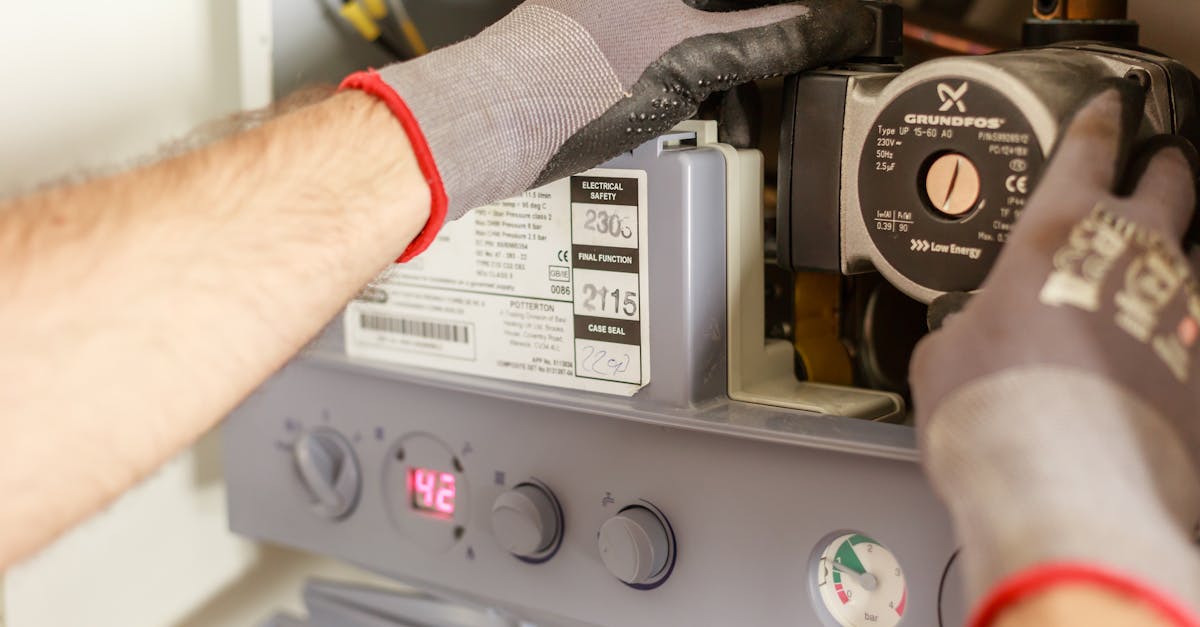Key Takeaways
- Significance of Leak Detection: Up to 30% of water loss in pools is due to plumbing leaks, making leak detection crucial for saving money and maintaining pool integrity.
- Common Leak Causes: Leaks often stem from cracks, faulty seals, aging fixtures, high water pressure, and poor installation, emphasizing the need for regular inspections.
- Effective Detection Methods: Techniques such as visual inspections, pressure testing, and electronic leak detection provide reliable solutions for identifying leaks in pool plumbing systems.
- Repair Techniques: Common repair methods include pipe replacement, sealant application, epoxy patching, and pipe lining, each suited to different levels of damage.
- Choosing the Right Service: Consider a service's experience, technology, transparent pricing, and customer feedback to ensure effective leak detection and repair.
- Proactive Maintenance: Regular maintenance and early leak detection can prevent costly repairs, enhance pool longevity, and improve water efficiency.
Every pool owner knows the joy of a sparkling blue oasis in their backyard, but did you know that up to 30% of water loss in pools can be attributed to leaks in plumbing systems? That's a staggering amount, and it can lead to costly repairs and increased water bills. We all want our pools to be in top shape, so understanding the importance of leak detection and repair services is crucial.
These specialized services not only help maintain the integrity of our pool systems but also prevent further damage. By identifying leaks early, we can save money and ensure our pools remain a source of relaxation and enjoyment. Let’s dive into the world of leak detection and repair, exploring the methods and benefits that keep our pools functioning at their best.
Overview of Leak Detection Services
Leak detection services play a vital role in maintaining swimming pools. We recognize that leaks can cause significant water loss and costly repairs. Our aim is to offer precise solutions to identify and repair plumbing leaks efficiently.
Importance of Leak Detection
Detecting leaks saves money and protects a pool's structure. A small leak can lead to wasted water, increased utility bills, and potential damage to surrounding areas. By utilizing field service management software, companies can streamline leak detection processes, making it easier for technicians to schedule appointments, track service requests, and monitor repair histories. Automated systems enhance efficiency, helping to eliminate human error and expedite problem resolution. Imagine the peace of mind knowing that your pool is leak-free and your wallet isn’t taking a hit every month.
Common Causes of Pool Plumbing Leaks
Understanding common causes helps in prevention. Leaks often result from cracks in pipes, faulty seals, or aging fixtures. High water pressure, ground movement, and poor installation can contribute to these issues. Utilizing technician scheduling tools allows service providers to perform regular inspections, identifying potential weak spots before they become major headaches. Regular maintenance keeps our pools healthy. Think about it: wouldn’t it be easier to fix a small issue rather than deal with a major repair later on? Embracing a proactive approach can extend the life of our pool systems significantly, reducing the likelihood of surprises that drain both water and finances.
Types of Leak Detection Methods
Leak detection methods play a crucial role in identifying issues within pool plumbing systems. We’ll explore several effective techniques used to find and address leaks, ensuring our pools remain water-efficient and safe.
Visual Inspections
Visual inspections involve a thorough examination of visible plumbing components. We check for cracks, corrosion, and loose fittings. This method requires keen observation and attention to detail. Technicians systematically assess pools, making sure to inspect areas like skimmers, return lines, and pump seals. Identifying visible signs can prevent larger issues down the line. Engaging in regular visual checks helps us catch potential leaks before they become major headaches. Do you often find yourself inspecting your pool for signs of wear? Continually looking out for small problems can save us from expensive repairs.
Pressure Testing
Pressure testing is a method that assesses the plumbing system’s integrity. Technicians introduce air or water into the plumbing and monitor pressure fluctuations. If the pressure drops, it indicates a leak. This technique is precise and effective for pinpointing leaks within underground pipes. By using pressure testing, we ensure a thorough evaluation, allowing targeted repairs. A rapid drop in pressure doesn't just suggest a leak; it can feel like a sudden drop in our weekend plans for pool fun! After all, nobody enjoys a pool that’s left high and dry.
Electronic Leak Detection
Electronic leak detection employs specialized equipment to find hidden leaks within plumbing systems. This technology captures changes in sound and vibration to locate leaks. We often use electronic leak detection in areas that are hard to reach. The method delivers quick and accurate results, allowing us to fix problems before they worsen. Relying on high-tech tools can feel like being in a sci-fi movie, but it’s just our trusty technicians utilizing modern advancements. Has anyone ever told you about the time a technician found a leak under a concrete slab with this method? Great stories often come with happy endings, especially when they prevent pool woes.
Repair Services for Pool Plumbing Leaks
Leak repair services play a crucial role in maintaining pool systems. These services help identify and fix leaks that can waste water and money.
Typical Repair Techniques
We rely on a few common techniques to repair leaks effectively.
- Pipe Replacement: In cases of severe damage, replacing the entire pipe might be necessary. This solution provides a long-term fix.
- Sealant Application: We often use specialized sealants to repair smaller leaks. This quick method can stop leaks without extensive work.
- Epoxy Patching: This technique involves applying a strong epoxy to seal cracks. It's particularly useful for small holes or leaks.
- Pipe Lining: For larger, damaged pipes, we consider lining. This method involves inserting a resin-saturated liner into the existing pipe, creating a new, durable inner layer without excavation.
Technicians utilize service business software to manage these repairs efficiently. With mobile workforce management tools, they can schedule jobs, track progress, and communicate with customers seamlessly.
Choosing the Right Repair Service
Choosing the correct repair service requires careful consideration.
- Experience Matters: We seek out services with proven success in leak repairs. Checking reviews and ratings from other pool owners helps us make informed decisions.
- Technology Use: Services that utilize field service management software excel at tracking repairs. These systems enable efficient technician scheduling and real-time job updates.
- Transparent Pricing: Services that provide clear pricing structures usually inspire more trust. Asking for estimates upfront is a smart approach.
- Customer Engagement: Assess how a service interacts with customers. A responsive and friendly team enhances the repair experience.
We might wonder, how often do we pay attention to our pool's plumbing systems? Staying on top of repairs can save us from future water waste and unexpected costs. So, let’s make a conscious effort to prioritize those pesky leaks before they become a bigger problem.
Factors to Consider When Hiring a Service
Choosing a leak detection and repair service involves careful thought. Several factors can influence our decision and lead to better results for our pools.
Experience and Expertise
Experience matters when selecting a service. Look for technicians who specialize in pool plumbing systems. These professionals understand common issues, from minor leaks to major repairs. Their expertise can save us time and money. Asking about their training and certifications can help too. A service that invests in ongoing training stays updated with best practices. Consider how long they've been in the field. A well-established company often has a solid track record and good community reputation.
Equipment and Technology Used
The right tools make a difference. Inspect whether the service uses advanced equipment like pressure testing systems and acoustic leak detection devices. These technologies provide accurate assessments and can pinpoint issues faster. Services utilizing field service management software often offer better efficiency. This software streamlines scheduling and tracking, ensuring timely repairs. Ask about their equipment and how it aids in the detection process. Companies that embrace automation typically minimize human error and improve accuracy.
Customer Reviews and Testimonials
Customer feedback can provide insight into a service's reliability and quality. Check online reviews and testimonials to gauge experiences from other pool owners. Positive reviews can signal trustworthiness and effectiveness. Look for comments about communication and follow-up. A responsive company engages customers and keeps them informed throughout the process. When reading reviews, notice recurring themes. High ratings in service quality or promptness matter when making our choice. Don’t hesitate to ask for references directly; real experiences can guide us toward the right decision.
Conclusion
Taking care of our pool plumbing systems is essential for maintaining water efficiency and preventing costly repairs. By investing in leak detection and repair services, we can safeguard our pools and enjoy them to the fullest. Regular maintenance and timely repairs not only extend the life of our plumbing systems but also help us save on water bills.
With various effective methods available for leak detection, we can ensure our pools remain safe and enjoyable. Choosing the right professionals is crucial, so let’s prioritize experience and advanced technology when seeking services. By being proactive, we can protect our investments and keep our pools in top condition for years to come.
Frequently Asked Questions
What causes water loss in swimming pools?
Water loss in swimming pools can be caused by several factors, with leaks in plumbing systems accounting for up to 30% of this loss. Additional causes include evaporation, splashing, and inadequate maintenance.
How can I detect leaks in my pool?
Leaks can be detected through various methods, including visual inspections for visible signs of wear, pressure testing to assess plumbing integrity, and electronic leak detection that identifies hidden leaks through sound and vibration changes.
Why is leak detection important for pool maintenance?
Leak detection is crucial as it helps maintain the pool's structure, prevents costly repairs, and reduces water bills. Early detection of leaks can save money and ensure the pool remains enjoyable and water-efficient.
What are common methods for repairing pool plumbing leaks?
Common repair methods include pipe replacement, sealant application, epoxy patching, and pipe lining. These techniques can effectively restore the plumbing system's integrity and prevent further water loss.
How can I choose a reliable leak detection service?
Select a leak detection service by considering their experience, technology used, customer reviews, and transparent pricing. A reliable service will have technicians skilled in pool plumbing systems and responsive communication.
How often should I inspect my pool for leaks?
Regular inspections, ideally once or twice a year, can help prevent major issues. Routine maintenance can detect small leaks early and extend the lifespan of your pool plumbing system.






